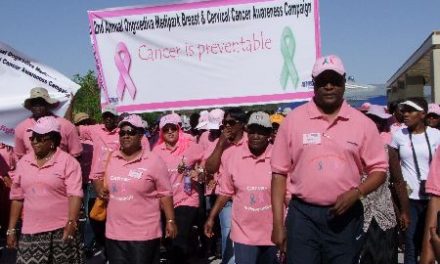
Lets build a fairer and healthier world for everyone – WHO

For the World Health Day commemorated on 7 April the World Health Organization (WHO) issued five calls for urgent action to improve health for all people.
WHO has realised that within countries, illness and death from COVID-19 have been higher among groups who face discrimination, poverty, social exclusion and adverse daily living and working conditions, including humanitarian crises.
They estimate that the pandemic had driven between 119 and 124 million people into extreme poverty last year and there is evidence that it has widened gender gaps in employment, with women exiting the labour force in greater numbers than men over the past 12 months.
WHO explained that these inequalities in people’s living conditions, health services, and access to power, money and resources are long standing, which results in under 5 mortality rates among children from the poorest households are double that of children from the richest households.
Life expectancy for people in low-income countries is 16 years lower than for people in high income countries, but, as countries continue to fight the pandemic a unique opportunity emerges to build back better for a fairer, healthier world by implementing existing commitments, resolutions, and agreements while also making new and bold commitments.
“The COVID-19 pandemic has thrived amid the inequalities in our societies and the gaps in our health systems, therefore it is vital for all governments to invest in strengthening their health services and to remove the barriers that prevent so many people from using them, so more people have the chance to live healthy lives,” said Dr Tedros Adhanom Ghebreyesus, WHO Director-General.
WHO is therefore issued five calls for action which are to accelerate equitable access to COVID-19 technologies between and within countries, to invest in primary health care, to prioritize health and social protection, to build safe, healthy and inclusive neighbourhoods and to strengthen data and health information systems.
“Now is the time to invest in health as a motor of development, because we do not need to choose between improving public health, building sustainable societies, ensuring food security and adequate nutrition, tackling climate change and having thriving local economies, because all these vital outcomes go hand in hand,” concluded Dr Tedros.











































